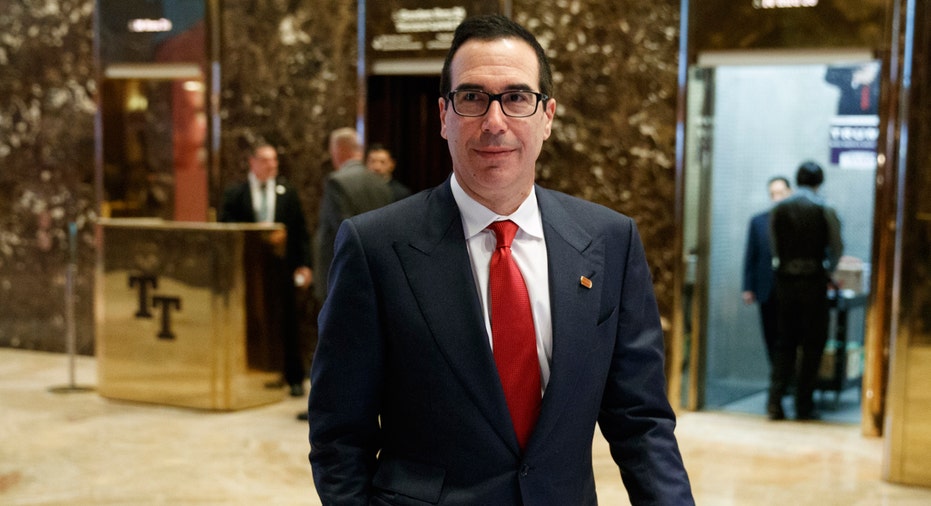Debt Limit Goes Back Into Effect at Level Near $20T

WASHINGTON (AP) — The national debt limit came back into force Thursday at a level near $20 trillion, prompting the Trump administration to alert Congress about the measures it will take to stay under the new limit.
Treasury Secretary Steven Mnuchin said in a letter to lawmakers that that he has started employing bookkeeping measures to avoid breaching the new limit, a process that will provide possibly five months or more for Congress to raise the limit.
The borrowing limit had been suspended since November 2015, allowing the government to borrow as much as needed to meet obligations. However, the 2015 legislation set March 16 as the date that the debt limit would go back into effect at whatever debt level existed on March 15.
The Treasury Department reported that the debt stood at $19.8 trillion at the close of business Wednesday. That figure will become the new borrowing limit, and Mnuchin will be required to take a variety of actions to keep below that limit.
Those maneuvers, set out in law, are deemed "extraordinary measures" but in reality they have been employed numerous times by Mnuchin's predecessors to buy time until Congress could pass the legislation needed to raise the borrowing limit.
In his letter to Congress Thursday, Mnuchin said he had suspended sales of state and local government series securities, which are special bonds that Treasury sells to state and local governments to provide them with a place to make investments that will eventually be used for such projects as infrastructure spending. He also declared a "debt issuance suspension period" lasting until July 28 that will allow him to halt investments in the Civil Service Retirement and Disability Fund.
Mnuchin said he would also halt investments into other government employee retirement funds. If the debt stalemate drags on, he will also have the power to remove investments already made in the government employee pensions funds, providing further room underneath the current borrowing cap.
As he did in a letter earlier this week, Mnuchin urged lawmakers to move quickly to raise the cap to remove any investor concerns that the government might not be able to meet all of its obligations, including making interest payments on the national debt.
"I respectfully urge Congress to protect the full faith and credit of the United States by acting to increase the stator debt limit as soon as possible," Mnuchin said in his letter to congressional leaders and other lawmakers.
The Congressional Budget Office has estimated that the bookkeeping maneuvers Mnuchin can use will be exhausted by sometime in the fall.
During the Obama administration, Republicans often sought to use must-pass legislation to raise the borrowing limit as leverage to force the administration to impose greater restrain on government spending.
In one standoff in August 2011, the Standard & Poor's rating agency issued a first-ever downgrade of a portion of America's debt, citing the 11th-hour bargaining that was needed to raise the debt ceiling.
The debt limit battles during the Obama administration often became so heated between Democrats and Republicans that investors worried that the government might actually fail to meet its obligations to finance the existing debt, an unprecedented default that would have sent shock waves through the global financial system.
House Speaker Paul Ryan, R-Wisconsin, said in an MSNBC interview Thursday that he expected Republicans would want to tie raising the debt ceiling this year to some other as-yet-to-be-determined legislation.
Ryan was asked if the link might be a demand for reductions in government spending that would equal the amount the borrowing limit is being raised. "We don't have a bill yet so I can't answer that question," he said.
Ryan said there were "lots of options" for what Congress might try to link to legislation raising the borrowing limit.



















